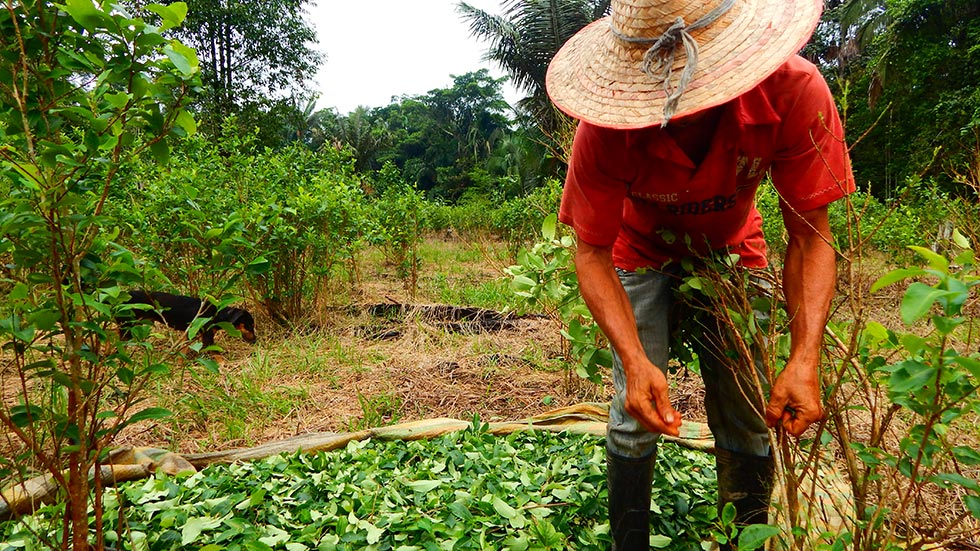Colombia’s military, FARC guerrillas and coca farmers on July 10 will begin a pilot program that seeks the destruction of coca plants, used to make cocaine, and replace them with legal crops.
The announcement was made by General Jose Angel Mendoza, the commander of the National Police’s counter narcotics department, who confirmed that the pilot will take place in Briceño where the military and the FARC also kicked off a pilot program to remove landmines.
The government and the Marxist FARC group, formally still at war with the state, will move ahead and begin the crop restitution program ahead of an expected peace deal that would end the rebels’ 52 war against the state.
Colombia begins pilot coca crop substitution program ahead of FARC peace deal
The crop substitution program was agreed during the peace talks as part of the plan to grant the guerrillas access to politics while they abandon the criminal activity that has been financing their violent insurgence since the early 1980s.
“This is a good sign, they themselves helping to eradicate the coca with us. This is positive, it’s a new strategy to put an end to all illicit crops,” said Mendoza.
The change on strategy agreed with the FARC is a major turn compared to Colombia’s controversial counter-narcotics strategies of the past decade.
As part of the US-supported Plan Colombia, small aircraft would disperse chemicals over presumed coca fields, leading to major complaints that food crops and people’s health were also affected by the manual spraying.
Additionally, changes in the coca growers’ strategy rendered the aerial spraying useless and coca cultivation last year reached levels only 6% lower than when Plan Colombia begin.
The Colombian government will now turn to crop substitution, which has proved successful in large parts of Peru, which is also dealing with a major coca-growing industry.
According to the deal made between the government and the FARC, coca farmers can voluntarily take part in the program without any chance of legal retribution.
Colombia’s peace deals in depth: Illicit drugs
To aid substitution, food assistance will be provided families in the areas affected by illicit crops.
The United Nations’ counter-narcotics organization, UNODC, will monitor the process. Other international agencies will help farmers’ transition from illegal coca growing to growing legal crops.
The local communities will be actively involved in the planning and execution of the crop restitution program, said the warring parties’ delegations.


